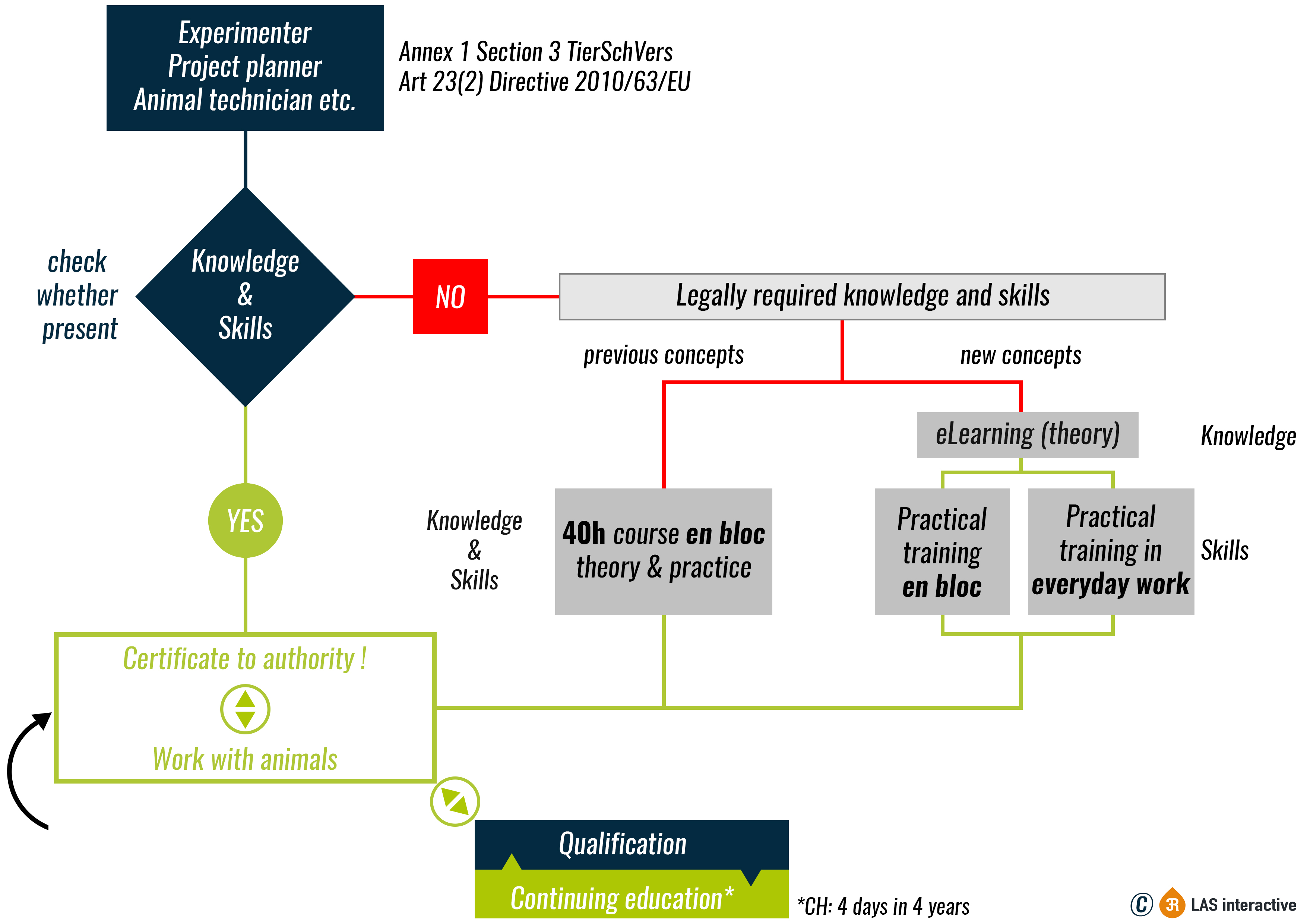Context – qualification to work with laboratory animals
Animal experiments are conducted for research on physiological processes, the development of products and treatment methods and for testing product safety. Despite significant advances in the development of alternative methods, animal experiments are necessary and will also remain so in the future in order to study the complex processes and interactions in the body. The framework conditions for conducting experiments are set forth in law.
There are thus official approval and notification procedures for conducting experiments. In addition, anyone who conducts animal experiments or works with laboratory animals in any other way has to be qualified and must undergo continuing education. The topics for basic training have been enshrined in law and applicable throughout the EU since 2013. In Germany, the so-called certificate of competence concerns above all scientific and technical associates who work on animal experiments at universities, research institutes and also in industry.
The basic training for the certificate of competence required by law can be summarized and organized in parts:
- A general part on the basic legal principles, ethical issues and submission of applications, as well as fundamental topics of hygiene, feeding and experimental methods.
- Specific content on special requirements of the target species (biology, husbandry, feeding, stress, methods and so on).
- Practical training in the target species.
Priority in training is not only on the protection of laboratory animals, but also on the issue of legal certainty in biomedical research work.
Training: knowledge is animal protection
Whenever you apply your knowledge on the subject of laboratory animal science and on animal experiment work in practice, you spare your animals unnecessary pain, suffering or harm in the spirit of the 3Rs (Replacement - Reduction - Refinement). This applies to all aspects of work with laboratory animals, including:
- Handling the animal
- Good Experimental Practice
- Extensive literature searches in the run-up to an experiment
- The requisite planning of experimental and statistical sample sizes.
This ensures not only that the animal is handled in accordance with animal welfare requirements, but also that only as many animals are used in experiments as are necessary or, where possible, that the use of animals is dispensed with altogether.
Against this background, LAS interactive offers online training for academic, corporate and industrial institutions. The offer is available in three languages (DE|EN|FR), so that non-German-speaking employees can also take part the requisite measures at the same time. The training establishes the conditions for responsible handling of animals in the research environment at a high level. The knowledge acquired ensures that employees act in accordance with the requirements of animal welfare law (EU animal protection directive, German animal welfare act) or other national requirements.
